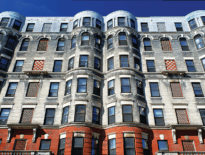An old tale holds a parable for Massachusetts’ political leaders as they gaze on a new bounty of tax receipts thanks to the success of Question 1.
Most students of ancient history are familiar with the story of Themistocles of Athens and his “wooden walls.”
When his ancient city discovered huge deposits of silver in the countryside – this, in the days when the supply of money relied on the mining of precious metals – his primary political rival argued that the newfound wealth should be distributed among the people, giving each citizen a small lump sum.
Themistocles, however, remembered that the Persian Empire had tried to conquer the city only a few years before, and still loomed as a threat across the Aegean Sea. He shrewdly convinced his fellow Athenians to instead invest the silver in a huge navy.
Seven years later, the Persians returned to conquer Greece with an enormous force. A sacred oracle predicted disaster for the Athenians, unless they put their faith in “wooden walls.” At Themistocles’ urging, the city and its palisades were abandoned to the enemy, luring the Persian navy into a trap in the Bay of Salamis. Athenian sailors riding in the real “wooden walls” – their ships – and their allies slaughtered their foes, cutting the Persian land force off from supply and forcing them to abandon the conquest for good.
Massachusetts politicians love to send large chunks of state revenues back to their districts in the form of small grants for local projects, typically wrapped up in a multi-billion-dollar “economic development” bill every year. And given how few strings are attached to the money set to be collected by the Millionaires Tax and how few concrete promises Question 1’s backers made about how the money will be used, it’s thoroughly possible the same fate awaits these new dollars: a small footbridge here, a middle school scoreboard there.
But after putting Massachusetts’ economy on the line with Question 1, at a time when sunnier states like Texas and Florida are aggressively recruiting startups with ostensibly lower costs of doing business, legislators must resist the temptation to fritter the new cash away in politically popular penny-packets.
It’s time to be highly strategic about how we use this new tax haul. What are two or three education or transportation investments that can produce outsized results that justify the hit to our competitiveness?
Maybe a big expansion of vocational education that can lower home-building costs and solve the long-term workforce problems every company will face in the coming years as Baby Boomers retire? What about climate change- and poverty-busting bus rapid transit networks for Worcester, Springfield, the South Coast, the Cape and the Merrimack Valley?
We need big ideas to prove to existing businesses and start-ups alike that Massachusetts’ newly-higher taxes are worth paying, lest they take advantage of remote work options to leave town.
Letters to the editor of 350 words or less may be submitted via email at editorial@thewarrengroup.com with the subject line “Letter to the Editor,” or mailed to the offices of The Warren Group. Submission is not a guarantee of publication.






